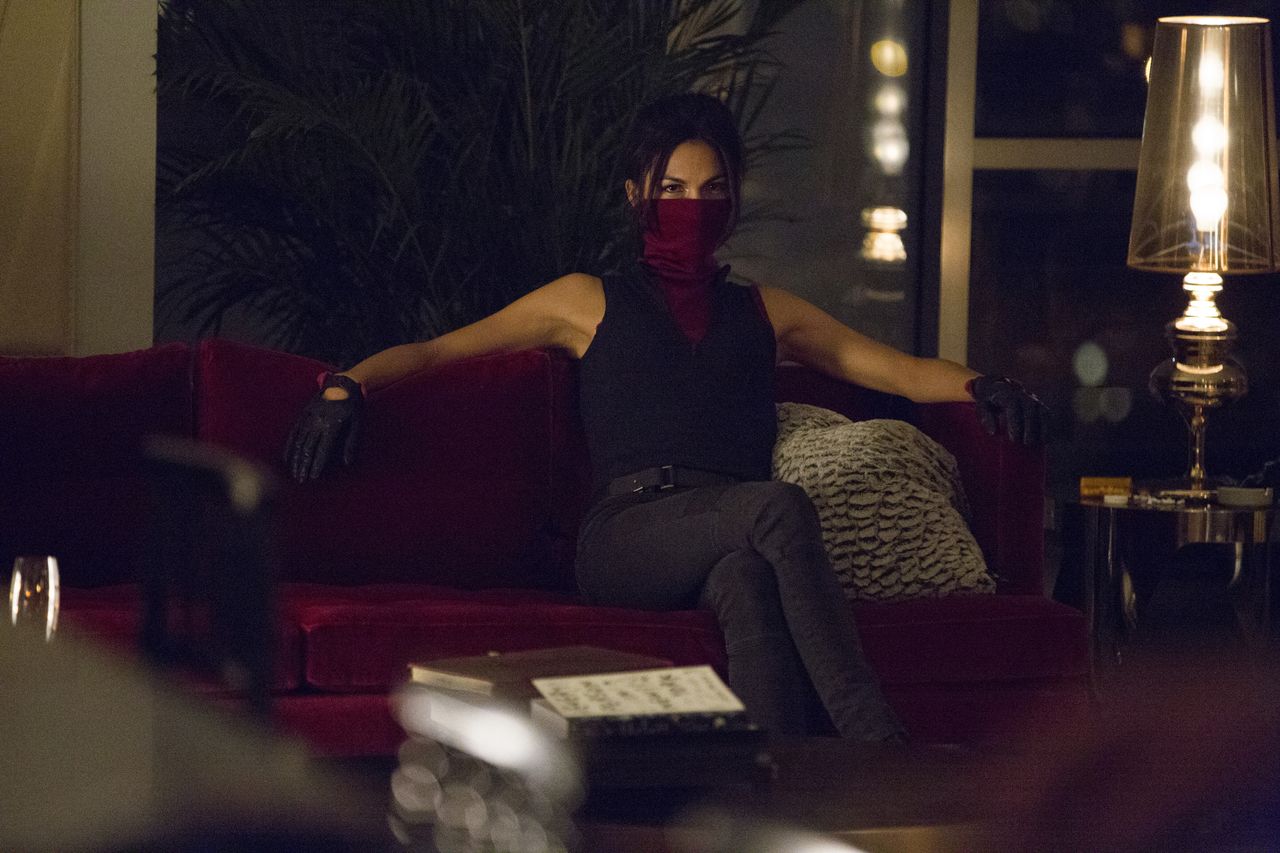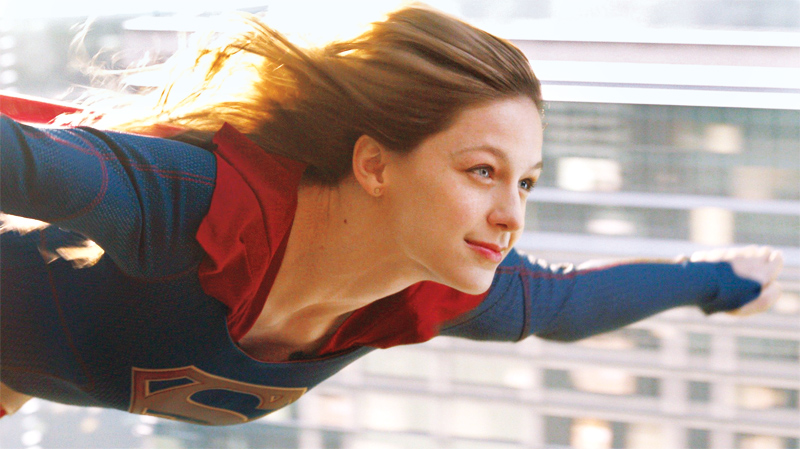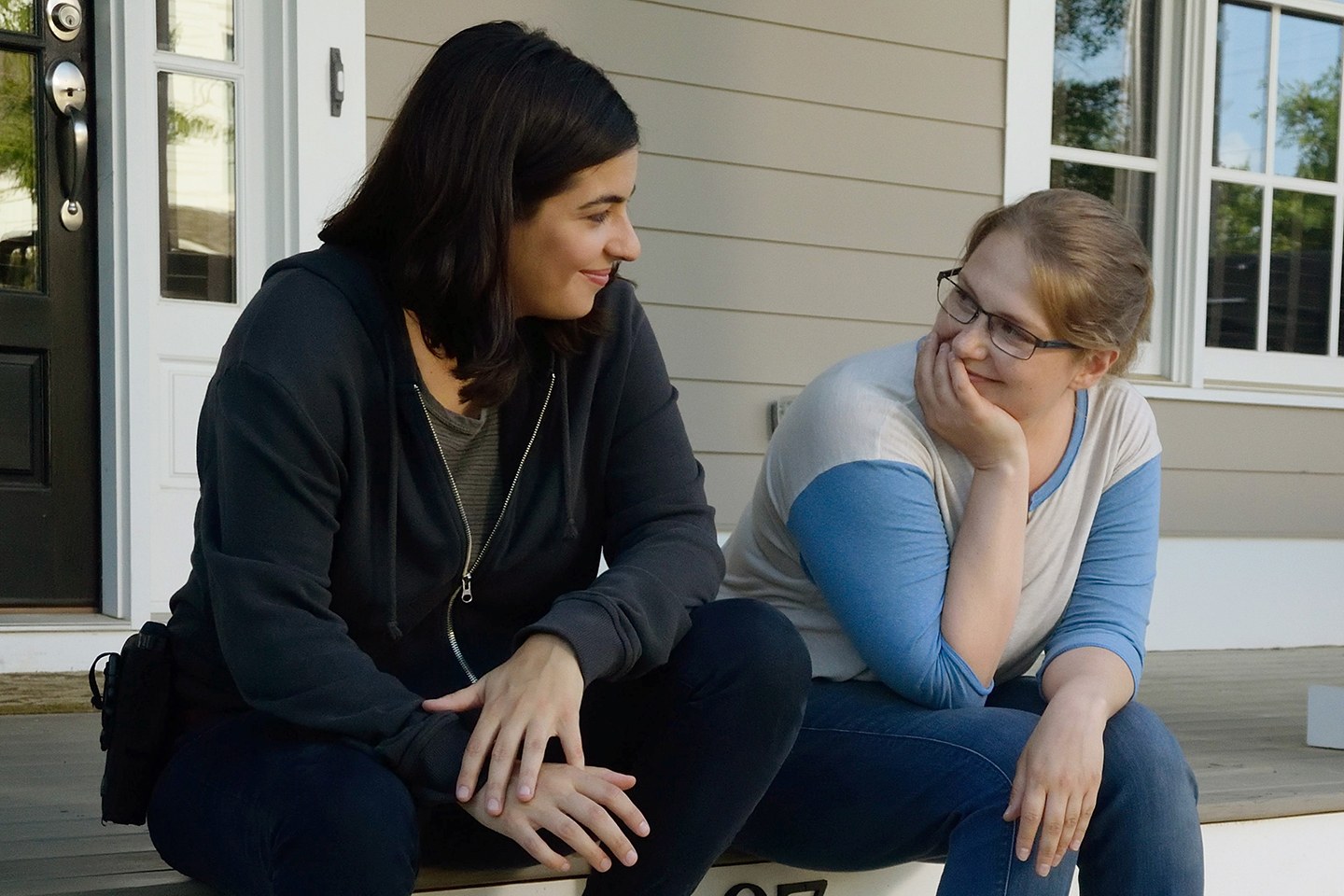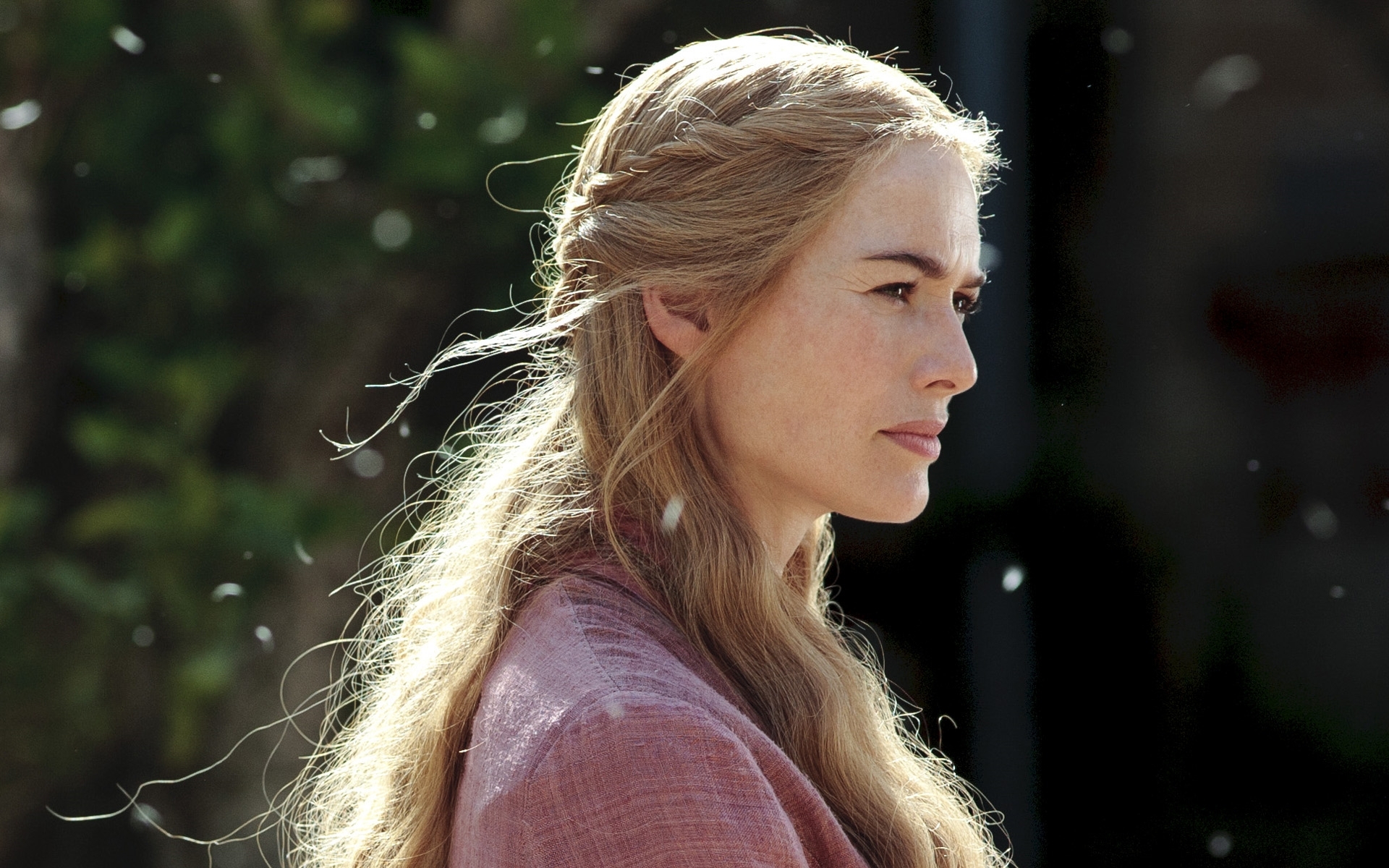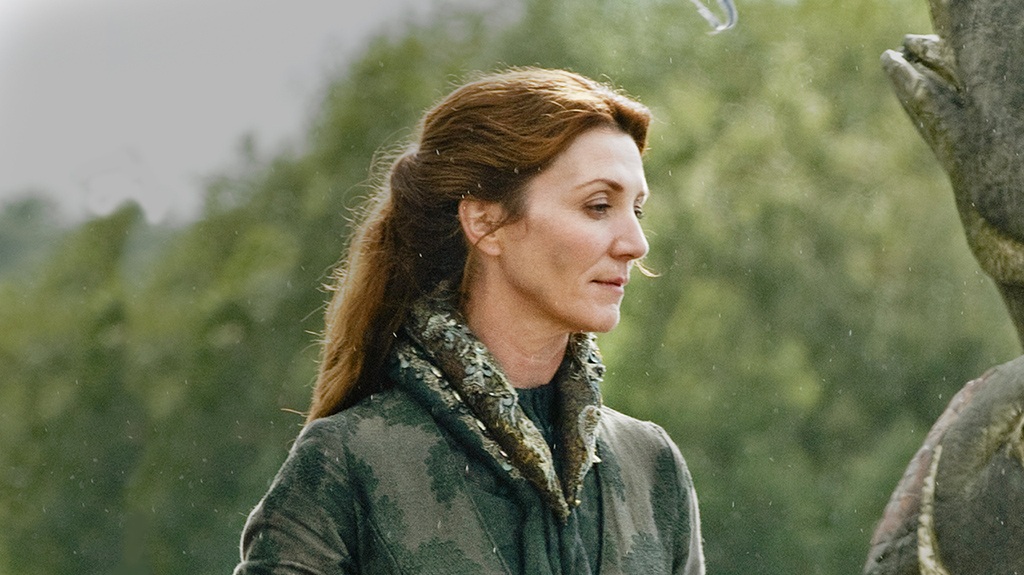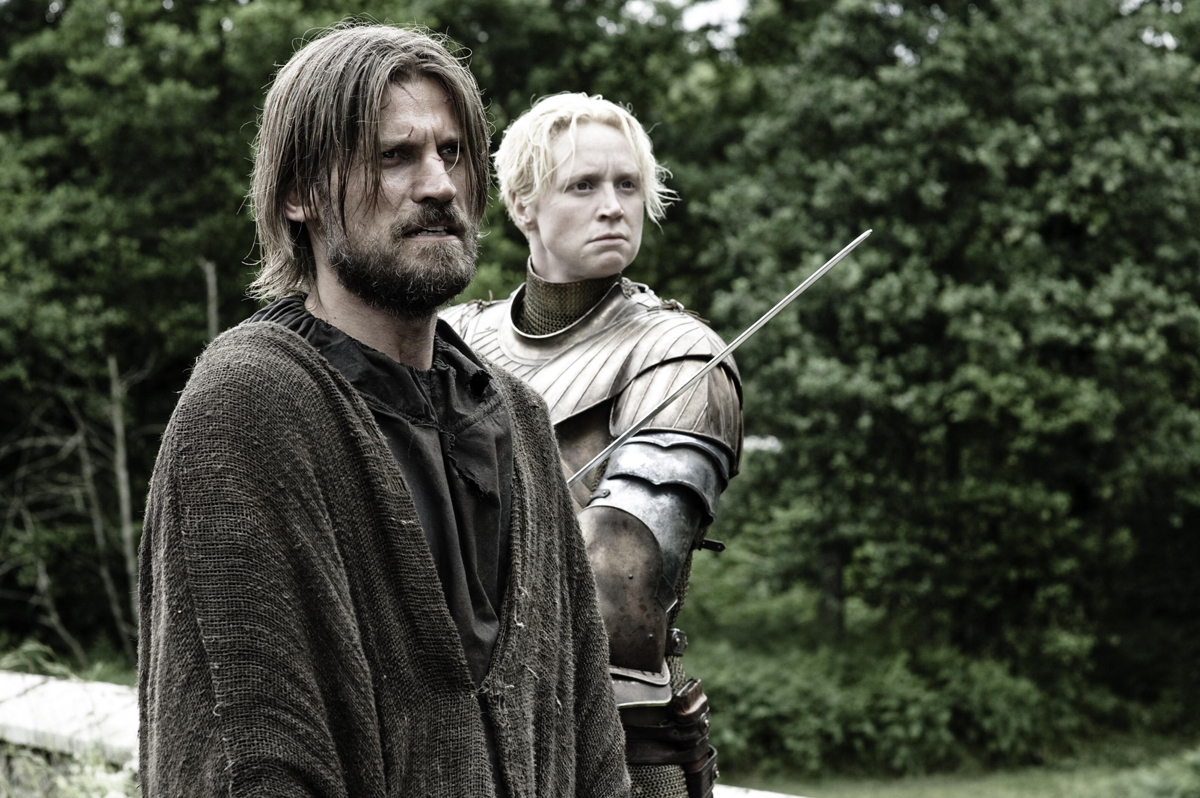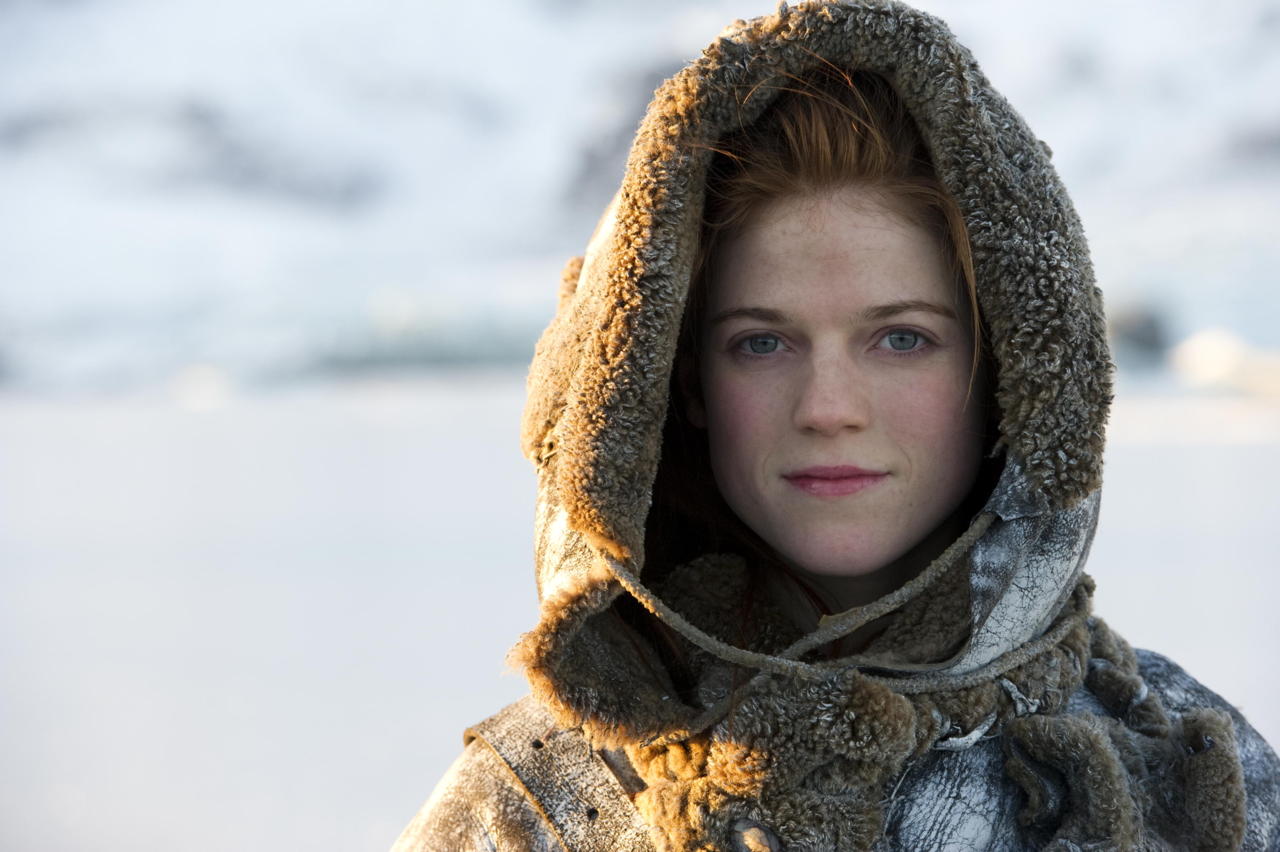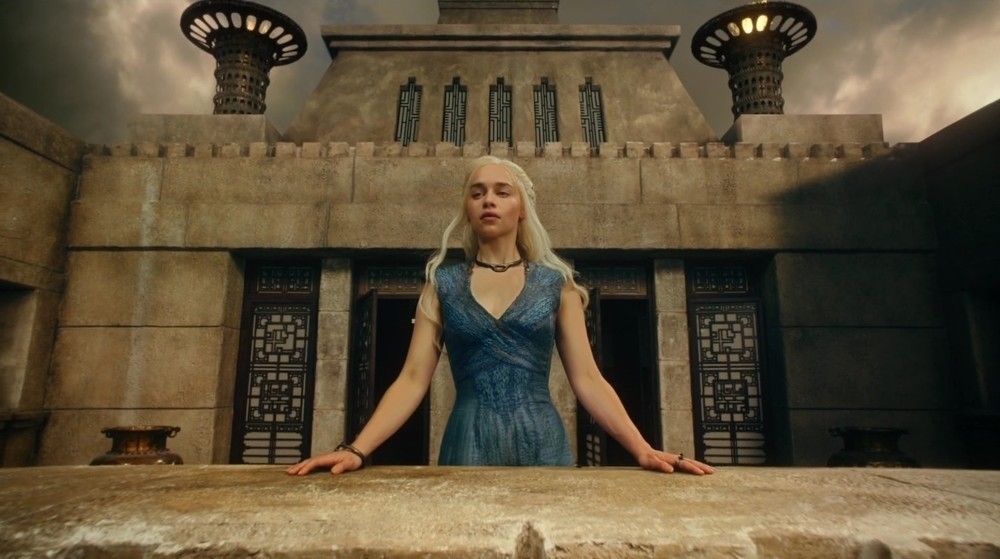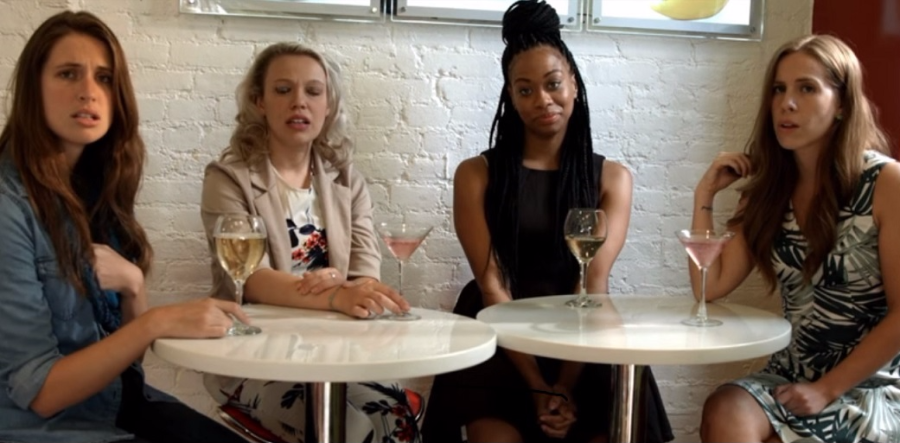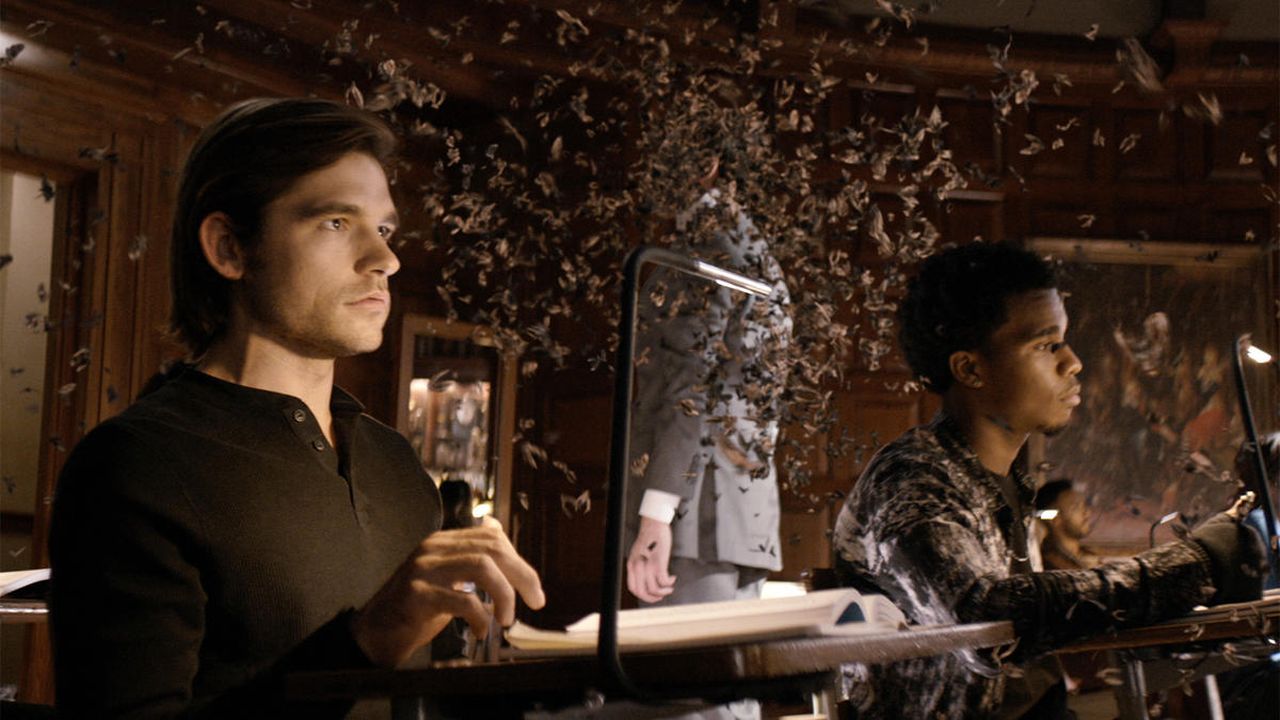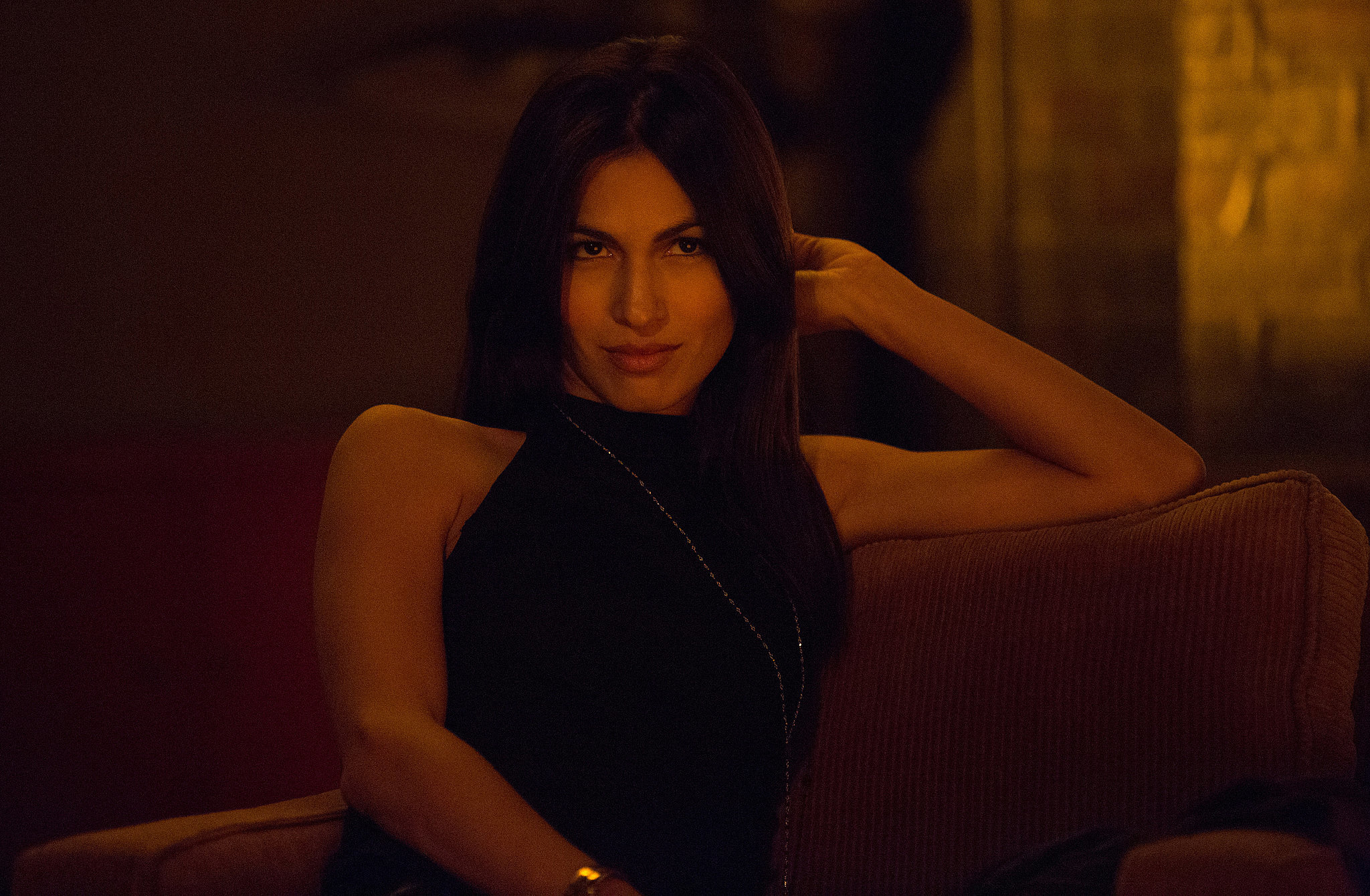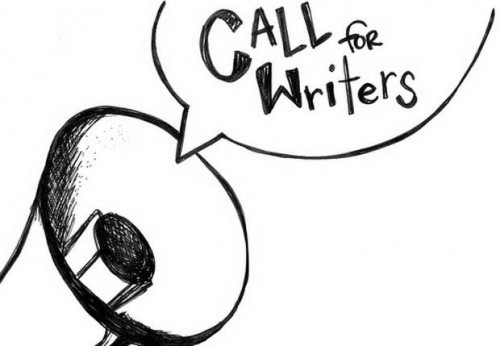This guest post written by Kelly Kanayama appears as part of our theme week on Superheroines.
When it comes to sensitive depictions of people of color, Marvel’s Netflix show Daredevil has a fairly terrible record. There’s Claire Temple, portrayed by Afro-Latina Rosario Dawson, who helps the white male hero but can never be with him; that privilege is reserved for Karen Page, the embodiment of pure, white womanhood. There’s Madame Gao, who checks all the boxes of the Inscrutable Asian stereotype: the exact nature of her Asianness can never be revealed, she appears to spend her time sipping tea and painting whatever this is, and her communication mostly consists of vague pronouncements. Then there are the hordes of nameless and – as a result of their face coverings – literally faceless ninjas, whose sole purpose is to be dispatched by Daredevil, as his skill in their own martial arts is just that impressive.
And then there’s Elektra Natchios, half-Asian, half-white, sexual, violent, dangerous, and in some ways, the most problematic character on the show.
Elektra functions partially as a contrast to Karen: the femme fatale of color tempting a moral white man away from his virtuous path and, because the two are linked, away from a good-hearted, white woman. To underscore this dichotomy, Karen typically wears whites, neutrals, and blues, like the Virgin Mary would, whereas Elektra’s wardrobe consists of red and black (the vamp’s colors) with accents of gold or the metal of a blade.
Although the series presents Elektra as Daredevil’s equal in terms of fighting prowess, the show disempowers her by attributing this to her status as a living weapon of the Hand. As a woman of color, she is inherently an empty vessel to be filled, with ultimately no agency regarding her actions. Even more worrying, the responsibility for her lack of self-determination lies with her fellow Asians; the Hand may have the occasional non-Asian member, perhaps highlighted to sidestep accusations of racism, but its operation and aesthetics are pure East Asian stereotype. This dynamic ties into other media depictions of people of color suffering the most oppression at the hands of their own – such as any Western news story about South Asian, Middle Eastern, and/or Muslim women – which often serves as justification for the exercise of white privilege over non-white individuals or communities. We might not be perfect, but we’re not as bad as them. It’s fine to bomb their countries, because otherwise they’ll just keep on oppressing.
It must also be noted that the only named Asian characters besides Elektra are Madame Gao and Nobu, whose name no one bothers to mention for most of Season 1 (I resorted to calling him Hot Suit Guy until then). For the most part, Asians in Daredevil are a monolithic mass, the menace of the Other against which a powerful white man must rise.
To meet this challenge, white men repeatedly prove their worthiness to rule by mastering Asianness. Daredevil and Stick are more proficient in Asian martial arts than the warriors of the Hand, while the Kingpin demonstrates his intelligence by speaking to Madame Gao and Nobu in their own languages. These men are thus “better” than their Asian counterparts, as seen in the Kingpin’s ability to convince Gao and Nobu to cooperate with him, or in the fact that both Elektra and Daredevil are both trained by Stick but the latter manages to not become a killer, due to a morality that the Asian Elektra can never have.
Daredevil is a white man’s world. Asians are just getting beaten up and dying in it.
Yet there is something strangely compelling about Elektra, not as an extension of the show’s tired prejudices against Asian people, but as a woman who despite her questionable origins transcends the limiting Strong Female Character trope. In addition to being half of a white woman/woman of color romantic polarity for Daredevil, her presence in and of itself disrupts the masculine hegemony of violence in the show.
Here’s a drinking game I wouldn’t recommend playing with Daredevil: take a sip every time the title character growls “my city.” You’ll pass out in the first fifteen minutes. It’s a key phrase in deciphering his motives behind defending Hell’s Kitchen, which aren’t simply rooted in the desire to stand up for victims of crime. If that was all he wanted, he would have stuck to his day job as a lawyer for the poor and the otherwise marginalized, without the need to sneak out after dark to break some bones. “My city” connotes ownership and, in turn, the right to treat the city’s occupants however he sees fit, since they as part of the city belong to him. The Punisher also comes to this situation from a (former) position of institutional authority. As a former Marine who was deployed in the Middle East, he represents the exercise of U.S. and largely white male-dominated power with the goal of establishing order, and still refers to himself as a “soldier.” This is the language of possession and imposition, spoken by the show’s white male leads.

Elektra displays little concern for such ideologies. Her accent marks her as an outsider in Hell’s Kitchen and in the U.S., and the phrase “my city” is absent from her conversation, as is its more neutral variant “this city.” She is a foreigner, a woman, and a person of color who is at least somewhat removed from her male counterparts’ battles of ownership and authority – and is their equal at what they do best in their efforts to impose the order of white patriarchal institutions upon their surroundings. To drive this point home, Elektra’s most sexualized moment is inextricable from her first display of physical power, as these are combined in that boxing ring scene – first through a fight where she and Matt are evenly matched, then through a passionate coupling where she spends most of her time on top.
In a show where violence equals authority, being the living weapon of the Hand grants her a status similar to those of Daredevil‘s male leads, investing her with the ability to fight alongside or against them as an equal. While Elektra’s is a different type of violence from that carried out by the Punisher or Daredevil with a different source, it is nonetheless effective.
Granted, this part of the plot is still highly objectifying. Perhaps I’m trying to justify my love for a character whose own backstory undercuts her power by finding alternate readings of the indefensible; even in 2016, as an Asian-American woman, I often have to settle for the problematic and compromised or nothing at all. It is a rare occurrence to see a powerful woman on-screen who looks like me and who isn’t entirely composed of racially fetishized tropes: the clingy schoolgirl, the murderous geisha, the dominatrix ninja, or some unholy combination thereof. Elektra may bear aspects of these tropes, but she is by no means reduced to them – in a show where authority is reinforced by successful acts of violence and such acts are the purview of white men, she undermines this supremacy through her own violence and her existence as a female Other of color among the male, the white, and the powerful.
See also at Bitch Flicks: ‘Daredevil’s Elektra and the Problem of Destiny; ‘Daredevil’ and His Damsels in Distress
Kelly Kanayama was born and raised in Honolulu but now lives in Scotland, where she is pursuing a PhD in comics research. She has written about comics and superheroes at Bitch Media, SciFiNow, NPR: Code Switch, Women Write About Comics, and Mindless Ones. Her poetry on comics and pop culture has appeared in Room Magazine, Ink Sweat & Tears, and the British Science Fiction Association magazine Focus. You can follow her on Twitter @kellykanayama.
